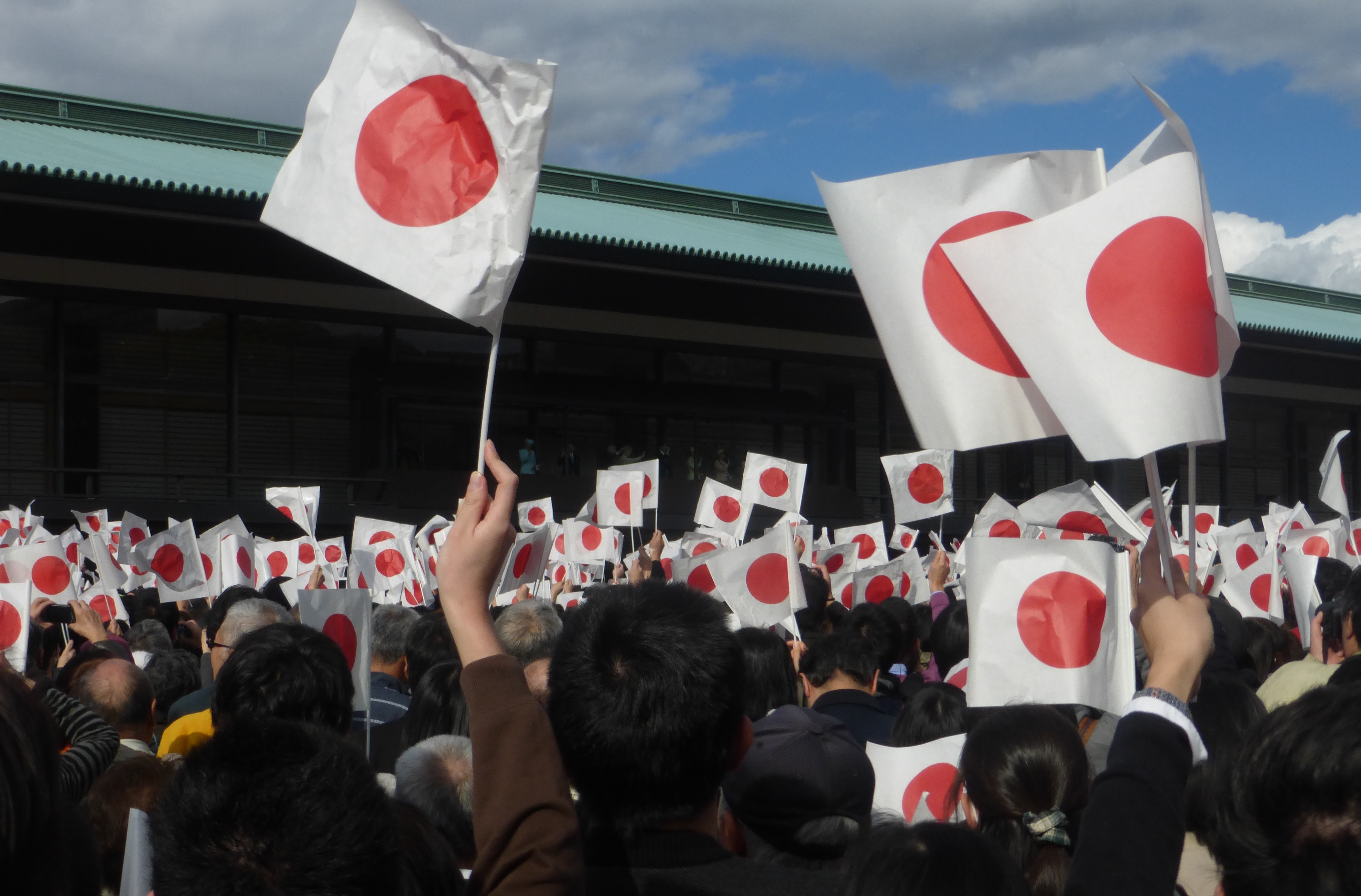Historically, Japanese women have not always been in a deprived position within society. Multiple female emperors have ascended the throne prior to modern times, though in the present-day women are legally no longer allowed to do so [2]. The 1889 Meiji Constitution exemplifies some of the prejudice that is rather engrained within Japanese politics and society, because Japanese royalty has been recently struggling to continue its lineage; therefore, even though an easy solution has presented itself—that solution being the inclusion of women as heiresses—those in power to make these decisions are so against the notion of women having this title that they would rather struggle to maintain a cultural standard than alter it, much like was done in ancient times [3]. This rhetoric is important to consider because of the influence that and the royal family has upon the societal standards of average, Japanese people. By continuing to allow a 19th century law to dictate how the royal family’s lineage will function, a message is being sent about how conservative and traditional the view of women are within their country.
Another aspect of Japanese politics that negatively affects women, and the country overall, is the lack of protections and encouragement in place for women that are survivors of sexual assault. On record, Japan is a rather safe country for women with “1 in 15” reporting they have been sexually assaulted within their lifetime, according to surveys done by the government; however, another study found that at least 95 percent of women do not report these crimes to the authorities, likely due to the overall negative stigma that exists around reporting sexual assault [4]. A major aspect of this specific issue has to do with Japanese culture, and how many people heavily practice a sense of silence when it comes to unspeakable or seemingly shameful acts, even if one is unable to control what has been done to them against their will. Additionally, the way in which Japanese authorities investigate the claims that are made, causes many victims to eventually discontinue pursuing their cases because the practices of victim blaming, and excessive interrogation are heavily utilized [5]. Since the government has decided not to properly address the root of the sexual assault issue—as in the people who are committing the assaults—they are not only allowing these heinous behaviors to continue but are also advertising an ideology where women are not as deserving of protection and justice as others. This dichotomy then radiates throughout other aspects of Japanese culture, including the treatment of women in the workplace.
Throughout many countries in the world, women are often treated differently within the job sector, and Japan is no different. In a 2018 study, almost 70 percent of Japanese women were employed—which is a rather impressive number on paper—yet nearly half of those women quit their jobs when they started families, while 56 percent were employed only part time [6]. In fact, even if Japanese women do work while raising children, there are still societal standards that they are expected to manage on their own. Not only must they complete assignments and tasks for their jobs, but they also have to factor in time for cooking meals, cleaning, and tending to their children’s other needs—without the expectation that their male partner should be helping their family as well [7]. This lack of support by society and the entities that employ these women has had a negative impact on the Japanese economy because of the rapid aging of the majority of Japan’s population.
Japan is the fastest aging country in the world and needs to find solutions rather quickly in order to ensure that their economy will survive once a large portion of their labor force is no longer able to work. However, a rather obvious solution to this problem has existed since the issue arose in mid to the late 20th century—that solution being allowing more women to work [8]. One study estimates that if Japan were to increase its “female labor participation” numbers, it would create a significant influence in workers that will ultimately help their economy to remain more stable and provide growth in the long run [9]. In other nations that have managed to increase their female labor participation numbers, they have managed to produce the outcome that the study suggest will help save Japan’s loss of labor issue. And although the inclusion of women and providing them with more supportive resources—resources such as, “neutral tax treatment of second earners, child care subsidiaries, and paid maternity leave”—is, seemingly, the most ideal solution, Japan has yet to effectively do so [10].
There has been a rather large amount of pushback by Japanese people regarding how women are treated in the workplace, and in response, the Prime Minister initiated a “Womenomics” initiative back in 2013 [11]. And although certain improvements have been made regarding more parental leave and the inclusion of women in more entry-level job opportunities, there is still a noticeable lack of women in management positions across multiple types of employment sectors and in the Japanese government [12]. Again, this great lack of representation showcases to the nation that women are not as important to society as their male counterparts, and the emphasis on a woman’s place in society being that of a mother or a homemaker exemplifies that their main duty within Japanese society is to appease the lives of men. This ideal is problematic for the morale of a large population of Japanese citizens, especially since the nation is struggling to fulfill certain roles and have enough qualified individuals so that their society can not only function but continue to grow into an even greater nation.
The consequences that women face in Japanese society—due to the lack of successful attempts at creating more equal opportunities and legally enforced protections—are very restricting and harmful to women and the entire nation. By not acknowledging the oppressive ideologies that many Japanese people still hold towards women populations, the government is implying that these people do not need, or do not deserve, to be protected from the ways in which employers, businesses, and regular people genuinely discriminate against women—even if these repressive practices are affecting their everyday lives.
Japan is a successful country in many regards, especially economically, though there are a lot of cultural values and norms that actively affect women in extremely negative ways. Women in this country are not safe when it comes to dealing with their sexual assaults in proper ways, they are heavily encouraged not to stray outside of traditional roles, and if they are comfortable enough to work are still expected to fulfill their wife and motherly duties largely without the help of their male spouse. In order for the country to become even more prosperous economically, they must start to address their social issues so that a large population of Japanese people are able to feel more comfortable within their county in order to best contribute to the nation’s overall success. By creating actual laws that address issues specifically and in their entirety, the Japanese government will be taking concrete steps to end a lot of prejudice and discrimination that exists throughout their country. And in doing so they will be creating a lot more opportunity, not just for women, but also for their nation as a whole.
[1] Hijino, Shigeki. “Japan.” Encyclopædia Britannica. Encyclopædia Britannica, inc., February
25, 2021. https://www.britannica.com/place/Japan/Demographic-trends#ref23254.
[2] Larson, Brooke. “Where Does JAPAN Stand in Its Approach to Women Rights in 2019?,”
May 23, 2019. https://savvytokyo.com/where-does-japan-stand-in-its-approach-to-women-rights/.
[3] Ibid.
[4] Ibid.
[5] Ibid.
[7] Ibid.
[8] Steinberg, Chad, and Masato Nakane. “Can Women Save Japan?” IMF Working Papers 12, no. 248 (2012): 1–50. https://doi.org/10.5089/9781475512922.001.
[9] Ibid.
[10] Ibid.
[11] Boykoff, Pamela, and Cardiff Garcia. “6 Years After Japan Launched Its ‘Womenomics’ Policy Is It Working?” NPR. NPR, May 23, 2019. https://www.npr.org/2019/05/23/726294619/6-years-after-japan-launched-its-womenomics-policy-is-it-working.
[12]. Ibid.







